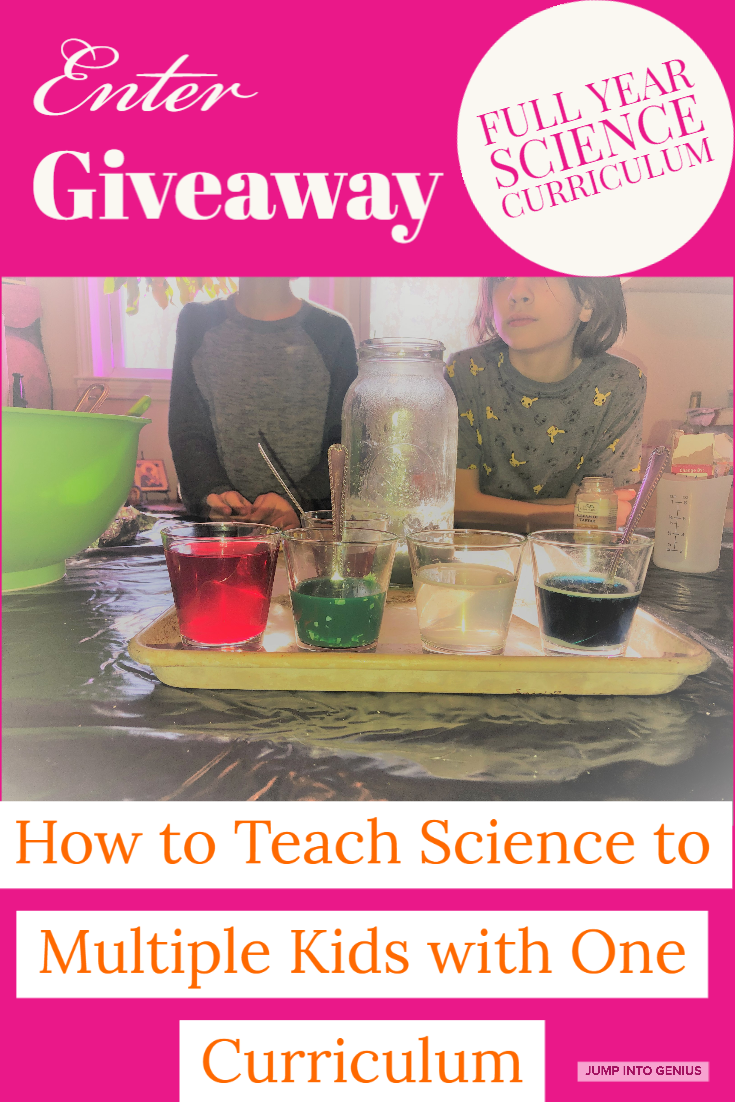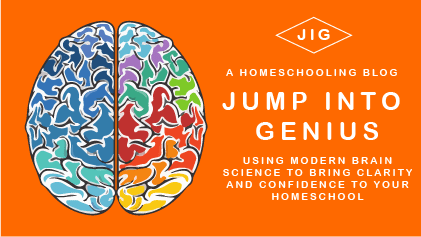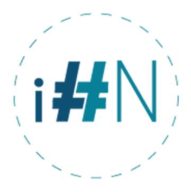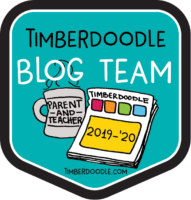
Science is a favorite subject of my kids. From the time my oldest kids were just little pre-schoolers, when I asked them what they wanted to learn about it was always a science topic. From insects, to planets and plants, they wanted to know more about the world around them.
This makes perfect sense. Young children see the world around them and it naturally awakens their curiosity, they want to know more about what they see. Many subjects are abstract to a little child. But an ant that they can pick up is very concrete. They love learning about those things which are a part of their everyday life.
So, for us, science was never a subject that I wanted to leave off until they were older. Because science was the thing they were the most curious about, it was the most important subject. Curiosity is a natural driver of motivation and motivation is a key to learning.
Science is mostly a content subject. Which means the child is taking in information. There are some skills a good scientist needs, such as excellent observation skills. Kids can practice observation in the course of daily life, whether or not their science program focuses on that skill. In fact, this is one reason many people focus on nature studies for science during elementary school, nature study requires observation skills.
Because science is primarily a content subject in the elementary years (I would argue more skills come into it during middle school and high school.) It is a great subject to teach your kids together. This can save mom time, so she has time to focus on each child during the skills subjects where they really need to be working at their own level and speed.
It is also just fun to explore the world and learn together.
So how can you teach kids of several ages at the same time while making sure they are all learning?
There are several methods you can choose from:
- Use unit studies
- The advantage is that unit studies are naturally built to dive deeply into a subject and so the cover a lot of detail. They also tend to use hands-on materials, activities, and books that can be read together, lending themselves naturally to communal style learning.
- The disadvantage is that unit studies usually require a lot of prep and planning on the part of the teacher. They are not an open and go option.
- Pull together your own materials
- The advantage is that there are a lot of amazing products focusing on one science topic. You can collect several of these on topics your kids are interested in to create your own program.
- The disadvantage is pretty much the same as for unit studies, it take time on your part to find the resources, organize them, and plan out how to use them over the course of the year.
- Find a curriculum that is easily adjustable
- This is the easiest and quickest way to get started. Very little planning and the curriculum is already scheduled out over the year.
- Your choices are a little more limited as curriculum tends to focus on certain subjects at different ages. You may not find a curriculum that addresses exactly what your kids are interested in that is also written to an appropriate age-level for your kids. In other words, it is less customizable.
What kind of science curriculum is easily adjustable?
A good science curriculum will have an amount of depth to it. Instead of just glossing over key concepts, it will dig deep into them. It will introduce kids to the vocabulary of science and older kids can focus on mastering complex concepts and vocabulary while younger kids are being introduced to those things for the first time.
Curriculum that has lots of good read-aloud books, experiments, games, and/or videos are an excellent fit for multi-level learning. Everyone can listen to the lesson, work together on experiments, and then complete any written work on their own level.
For a young child, the ‘written work’ may be answered verbally. Older kids can be required to answer in complete sentences. An older child can keep a vocabulary notebook, and complete extra vocabulary activities, while a younger child can be verbally quizzed on some of the most basic terms.
You may be wondering where you can find a curriculum like this.
Disclaimer: I received free product and was compensated for my time spent creating this review. This is an honest review and I was not required to write a positive review.
BookShark Science uses books, a kit for experiments, and suggestions of video topics to search for on YouTube. The worksheet activities are straightforward and easy to adapt for kids of different ages.
I used the level G with a 9, 10, & 12-year-old. The level states it is for ages 11-13. I did wish that I had ordered another level up. Although my two youngest were learning a lot, I originally wanted to include my 13-year-old in the studies, but it was too basic for her. (In other words she was not learning any new concepts and was bored, so I let her focus on another science program.)
Now, we are a science heavy family, so if you have not done a lot of science studies an older child might fit into this program just fine. But in general, I would say that no matter which program you choose when you are planning to adapt it to the needs of multiple levels, it is best to buy a curriculum targeted for the oldest child. It is just easier to adapt a program down in level, then to adapt it up.
For example, if BookShark Science G came with extra vocabulary activities I think it would have been more engaging for my 12- and 13-year-olds. I would have just left those activities off for the younger ones. Although there is a suggestion for the child to keep a vocabulary notebook, I find that vocabulary is easier to remember if the child encounters it in more varied activities.
For example, they hear it in the reading, write it in their notebook, and then a few days later they complete a crossword or matching activity. While there are some activities like crosswords or matching provided in this level of BookShark, I would have preferred a targeted vocabulary activity available for each week, especially for my older ones.
These are the kinds of things that may be provided for you in a higher level of science that make it easier to adapt. Of course, you can make your own extra vocab activities, but that takes extra time for mom, and in this program you would also need to go searching through the text for the week to build your vocabulary list as there is not one provided by the curriculum.
BookShark Science is a good fit for homeschoolers that are looking for a secular science program that can be completed in 4 days a week in a short lesson. It is an easy open and go option that you can complete with kids who are a few years apart in age. If you have trouble fitting science into your busy homeschool life, this program is a great choice.
BookShark Science is easy to adapt to your own schedule preferences
My science crazy kids were not satisfied with the 20 minute lessons and we often completed a week in one or two days. This really depends on the attention span and interest of your own kids. For us, a year of BookShark Science would not last a year. If your kids like to focus on a topic like science for an hour, just complete it at their pace. It is easy to just schedule your history and science for alternating semesters if this is the case. You will not need to go out and buy more science, as plenty of material is covered in BookShark Science G.
What’s included in the BookShark instructor’s guide?
- An easy to follow weekly schedule
- This is the part of the curriculum that makes it an open and go choice.
- I love that you can glance at the whole week on one page, this makes it easy to adapt.
- If you follow a 4-day a week schedule for science you won’t need to adapt the schedule at all.
- Activity sheets
- These are basically well designed work sheets.
- The schedule will indicate which questions on the activity sheet to complete each day and this correlates with the reading for the day.
- If you are using this with more than one child you will need to copy the activity sheets, I used a black & white machine, some pages are colorful so you may prefer a color copy.
- Answer keys for the activity sheets
- These are very easy to follow.
- Sometimes I would read the answer to a question out loud so the kids could all hear a well worded answer and then compare their answer to see if they got the general idea correct.
- For things like matching I let the kids look at the answer key and correct the work themselves.
- Notes and suggestions of extra activities, conversations, or videos you may want to include.
- Some days in the schedule will suggest a do-together activity or video topic.
- This is found on the back side of the schedule.
- The instructions are brief and to the point, easy to follow and implement.
- Occasionally you will find notes that clarify or add to a concept that was taught in the text. If the book explained something in a confusing way, or if a deeper explanation was needed notes are added to this page so you can make sure your kids correctly understand the topic being covered.
A note about the video suggestions. These suggestions typically just tell you an idea or phrase to search for on YouTube. There are not specific videos that go along with this curriculum. While there is a page on BookShark with suggested videos I found it did not include much for this level, and the after hunting down the page and linking to the first suggested video I was not at all impressed with the video that was chosen. It was very short and did not explain the concept of the experiment. So just be aware that this is not a video curriculum, even though they do give you suggestions, you are on your own to search and find good videos that fit the description.
Essential science experiment info
Some families love completing science activities/experiments (most activities in curriculum are not actually experiments, but are generally incorrectly labeled with that term.) Other families would rather not spend the time. We may have guessed by now that my family falls into the ‘could do experiments for two hours a day and be perfectly blissful’ category. But I just want to say a word here. It’s okay to leave some of those activities out. You don’t have to do them all. Especially if your kids don’t like them. Your kid will still be able to learn high school level science even if they never made a baking soda and vinegar volcano.
BookShark Science G has an activity/experiment most weeks. I do wish there was an experiment every week. There was a streak of 4 weeks in a row with no experiments and my children found this to be greatly disturbing. I feel like having an experiment day once a week keeps a nice rhythm to science studies. Instead, the weeks without an experiment were just completed sooner. And you would think my kids would be happier about an extra day off science, but they were sad.
There were some activities/experiments that I felt were very low level for the age of the kids this level is designed for. For example, there is an ‘experiment’ where they dump a bunch of different acids and bases into one jar to observe color change. But this type of activity is much more effective if you mix just two thing in separate jars so you can see which things are making what color changes instead of just creating a mysterious brown mixture. I found this to be very unscientific approach, and so did my kids. We re-did it all so we could see what substances were creating which color changes. It was not only more scientific way to go about the activity but it was also a lot prettier.
Although I liked most of the books chosen for this BookShark Science kit I am not impressed with the book they chose for science experiments and activities. Many experiments were difficult to do with the included supplies.
BookShark Science also comes with a supply kit for the experiments/activities. In addition to the supply kit, you will also need to provide some of your own supplies. Honestly, I have mixed feelings about ‘science supply kits’ because I always find some things lacking, and other things that are included, I already having lying around the house. Of course, with out the kit you have to hunt down even more odd supplies. So I have a complicated love/hate relationship with science supply kits. The BookShark kit proved to be just like every other science kit I have tried.
There was one experiment where a certain chemical was needed and the supply kit did not even include half of the amount called for in the directions in the experiment book. Luckily we are science nerds and after raiding several kits we found just enough more to bring us up to the halfway point, so we did get to complete a mini version of the activity. But most people are not going to have this lying around.
Another activity required a ‘stovetop diffuser’ which is not included in the kit, and is not an easy, common supply to find. There was no explanation of why this was needed, or alternative materials. (You know, in case you don’t want to spend $20 bucks, and precious time hunting down on an item that will only be used once.) In the end, I improvised by using a cast-iron skillet.
How do you know what extra supplies you will need to purchase?
I really wanted a supply list that was on one page and organized by week so I could see at a glance what was needed each week. I tend to buy any non-perishable supplies at the beginning of a school year so the only things I have to worry about picking up are perishable grocery store items such as purple cabbage. There is a convenient list of what supplies you will need for the next week provided at the bottom of each weekly lesson plan. This is great for reminding you that you will need cabbage next week.
The downside is that I don’t like pulling out my science notebooks every time I head to the store. And I don’t like having to worry about items like ‘stovetop diffusers’ with only a week to find it or decide how to hack the requirement. I like to contemplate such things with plenty of time to spare. So one sheet, where I clearly see what I will need to purchase through the year, would have been a very helpful tool. Of course, you can make a list yourself, going through each weekly lesson and writing or typing up the supplies you need to provide. But that is work I expect the curriculum to do for me.
BookShark science is a thorough science program with a focus on keeping science fun and interesting. It is designed to be open and go, and that is true other than the science kit and supplies needing a little refining.
If you need an easy open and go secular science option that you can easily adapt to several ages, I encourage you to give BookShark Science a try.


